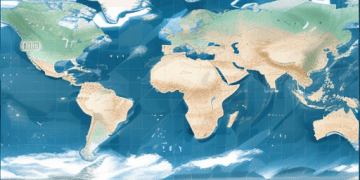The shipping industry is increasingly focusing on supply chain transparency and due diligence, driven by regulatory changes and growing expectations around environmental, social, and governance (ESG) standards. Stakeholders, including ports, shipyards, vessel owners, and operators, are addressing issues like labor standards, human rights, and environmental protection across their supply chains.
Regulatory Drivers and Industry Trends
Countries in the European Union and Norway have led efforts to implement ethical sourcing programs and report labor and human rights practices. The European Union has introduced measures such as the Corporate Sustainability Reporting Directive (CSRD) and Corporate Sustainability Due Diligence Directive (CSDDD), requiring maritime companies to report on social and environmental performance. These rules are expected to impact approximately 50,000 businesses globally and extend to non-EU companies operating within the EU by 2028/29. Other nations, including Canada, Australia, and Singapore, are aligning regulations to similar standards or offering voluntary guidance.
Challenges in Implementation
While awareness is growing, the maritime industry faces challenges in implementing effective ESG frameworks. Concerns about reputational risks and regulatory compliance are tempered by the complexities of supply chain audits. Reports highlight ongoing labor issues in certain regions, such as the Middle East and Asia, where migrant workers are sometimes subjected to conditions like debt bondage and forced labor.
Audits have revealed discrepancies in compliance, with some companies providing only superficial modern slavery statements. For example, while some companies have detailed statements spanning several pages, others offer minimal documentation.
Variability Across the Sector
Labor and environmental standards vary widely by region, flag state, and operator. Fishing fleets and other maritime sectors have faced scrutiny for historical labor abuses, and the fragmented nature of regulatory oversight complicates enforcement. Organizations often struggle with the lack of standardized reporting formats and the manual processes involved in collecting supply chain data.
Collaborative Solutions
Collaborative approaches, such as using neutral third-party data platforms, can help standardize reporting and reduce duplicative efforts. Improved systems could benefit both suppliers and buyers, facilitating a more streamlined and effective ESG reporting process.
By addressing these challenges collectively, the maritime industry has the potential to advance its ESG objectives while fostering greater supply chain transparency.
Stay updated with supply chain logistics news on The Supply Chain Report. Free international trade tools are available at ADAMftd.com.
#SupplyChainTransparency #ShippingInnovation #TransparentTrade #SustainableShipping #GlobalLogisticsRevolution















